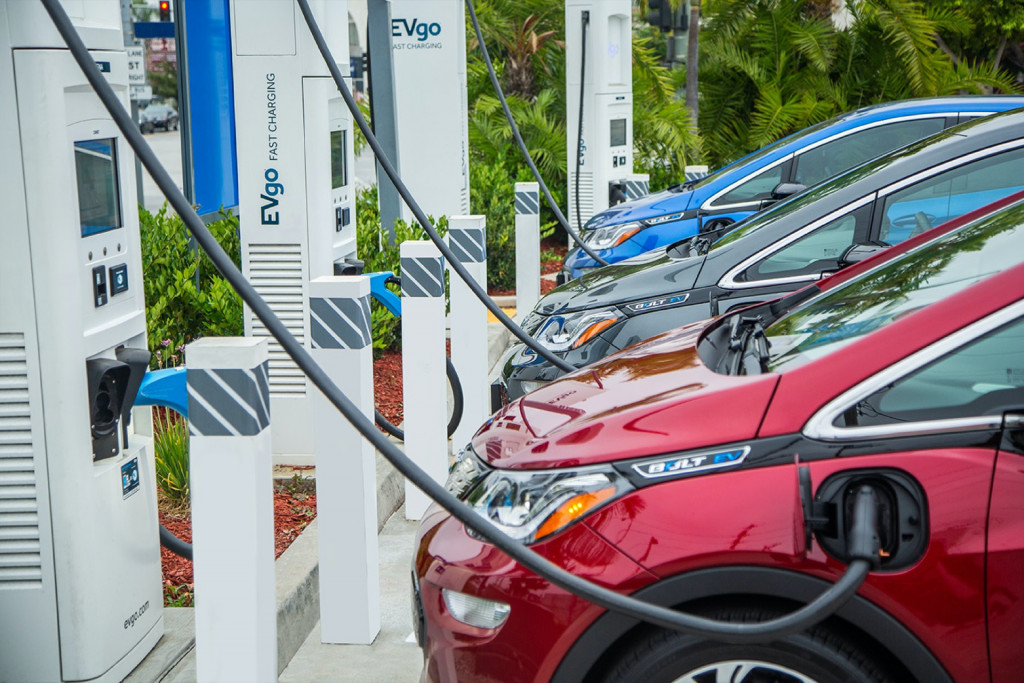Meeting federal goals for a national charging network will require 1,104 EV fast-charging stations along major corridors, according to a new Great Plains Institute study.
The Bipartisan Infrastructure Law set aside $7.5 billion to build a national EV charging network of 500,000 charging sites, with $5 billion of that amount to be distributed to individual states. To qualify for that funding, the feds have set guidelines that call for four 150-kw connectors, every 50 miles.
Existing and recommended U.S. EV fast-chargers (from 2023 Great Plains Institute study)
Of the nation’s 4,943 existing public non-Tesla fast chargers, just 509 comply with the guidelines, handed down by the Federal Highway Administration under the National Electric Vehicle Infrastructure Formula Program (NEVI). Hence the need for just over 1,000 fast chargers in order for there to be one NEVI-compliant site every 50 miles. Adding those chargers represents an estimated $794 million to $1.3 billion in installation costs, according to the study.
That assumes making federally-designated Alternative Fuel Corridors compliant with the NEVI guidelines, which require stations to be located within one travel mile of one of the corridors. Created in 2015, the Alternative Fuels Corridor program recognizes highway routes with significant infrastructure to allow regular travel by EVs and other alternative-fuel vehicles.

GM and EVgo expand major-metro fast charging
The sixth round of Alternative Fuel Corridors was announced in 2022—just as states finalized EV charging plans to receive NEVI funding. All states had effectively gotten the green light for their plans by the end of September.
However, the study points out that four 150-kw connectors every 50 miles may not be sufficient for higher-traffic routes, and additional stations would be helpful to connect adjacent routes. The Great Plains Institute has also launched an interactive roadmap showing how the network might come together and what’s needed to provide comprehensive charging infrastructure.
